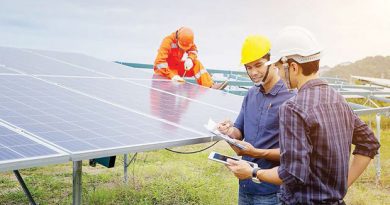Developing Economies Need RE Based Cooling Solutions For Growth: UNEP
 Developing Economies Need RE solutions for Growth: UNEP
Developing Economies Need RE solutions for Growth: UNEP
In the report, “Cooler Finance; Mobilizing Investment for the Developing World’s Sustainable Cooling Needs” released by the UN Environment Programme (UNEP)-led by Cool Coalition and International Finance Corporation (IFC), talks about while the market for cooling in emerging economies currently stands at around USD 300 billion, it will increase at least by USD 600 billion per year by 2050. It is at this point that the markets are expected to expand the most in Africa and South Asia. It has an estimate of growing sevenfold in Africa and quadrupling in South Asia.
The report calls for sustainable, energy-efficient, and environmentally friendly cooling solutions. Already, developing economies account for two-thirds of the world’s cooling-related emissions. Additionally, growth in population and economy, as well as urbanization, will lead to a doubling of cooling demand in these regions by 2050.
The report also indicates that sustainable cooling technologies like wind and solar energy reduce the emission of cooling-related by almost half in the developing economies by the year 2050. Key strategies for the approach include: using insulation, reflective materials, and greenspaces for passive cooling. Energy-efficient technologies as well as stricter building energy codes are similarly important.
It suggests a systems approach to the cooling infrastructure, which will involve the development of cold chains, offering incentives to promote innovation in cooling technologies, and steps taken to improve the minimum energy performance standards and phase down these climate-warming refrigerants.
Makhtar Diop, IFC Managing Director, says the economic potential for the sustainable cooling market for developing countries is more than USD 8 trillion. However, closing the gap in access to cooling today requires a massive upfront investment of between USD 400 billion and USD 800 billion to meet that future demand.
The report challenges governments, private business enterprises, and financial institutions to invest more in cooling solutions. It should improve on data concerning cooling needs, with innovative financing tools and more funding for new technologies. UNEP and IFC are committed to collaborate with stakeholders to help create an enabling environment conducive to sustainable cooling investments, especially in low-income areas exposed to extreme heat risks.
The report concludes that to ensure climate resilience, public health, and economic development, sustainable solutions should be prescribed to account for the growing cooling demand.




